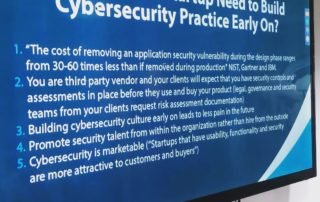Procurement Preparation for Startups
Entering into a business relationship with a Fortune 500 company or a large client (buyer) can produce an incredibly complex procurement for a vendor (supplier, startup). When purchasing products or outsourcing managed services for core operations, it can expose an organization (buyer) and its customers to security risks leading to intentional or unintentional incidents impacting the continuity of electronic communications services. In order to prevent or mitigate such security risks, organizations (buyers) have the opportunity to apply specific security requirements through their internal Third-Party Risk Management to their suppliers or outsourcing partners.
PreCog Security team mitigates the risk of lack of preparedness for procurement by helping startups implement security controls that are part of the security, data governance, and legal mandates within large organizations. If your startup is stuck in procurement and showing a high score on your client’s third party risk assessment – our team will assist in building necessary processes and documentation in place and put you in the best position to move through procurement and satisfy your client’s security mandates.
Startup Questionnaire
In order to put your organization in the best position to acquire large client and mover through the procurement of Fortune 500 customer, our research and recommendations are to align internal processes and procedures to ISO 27001 standards and include internal security controls such as:


